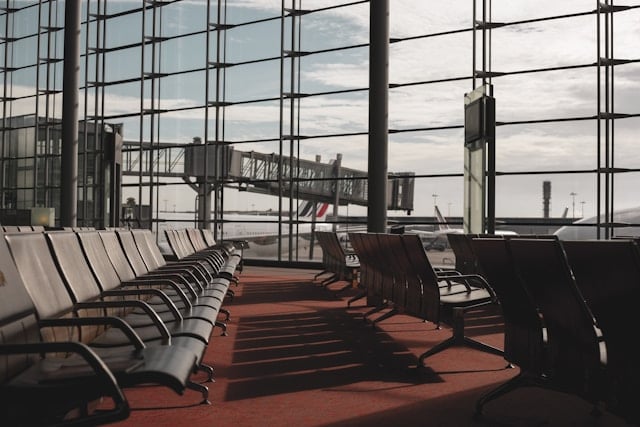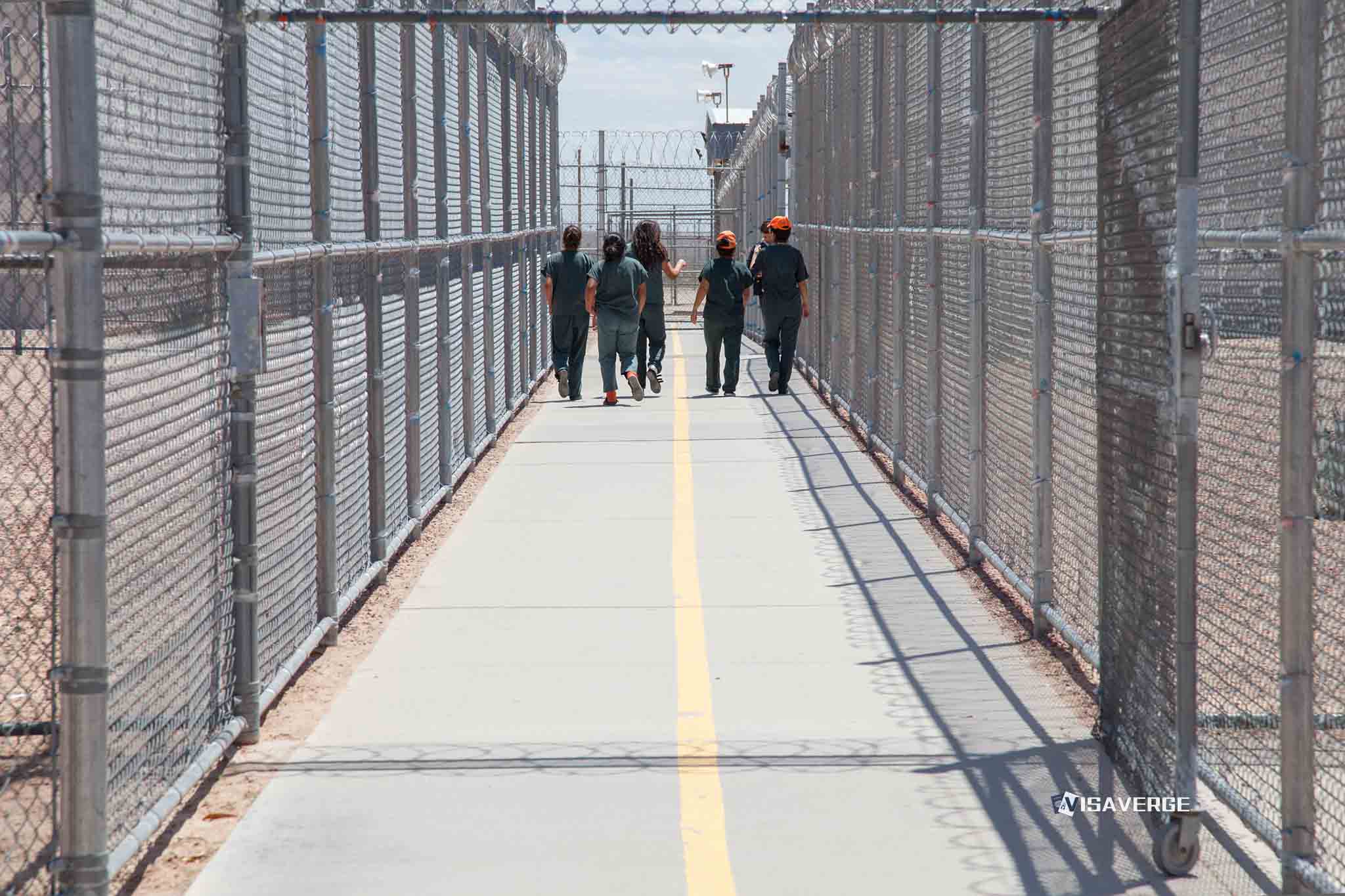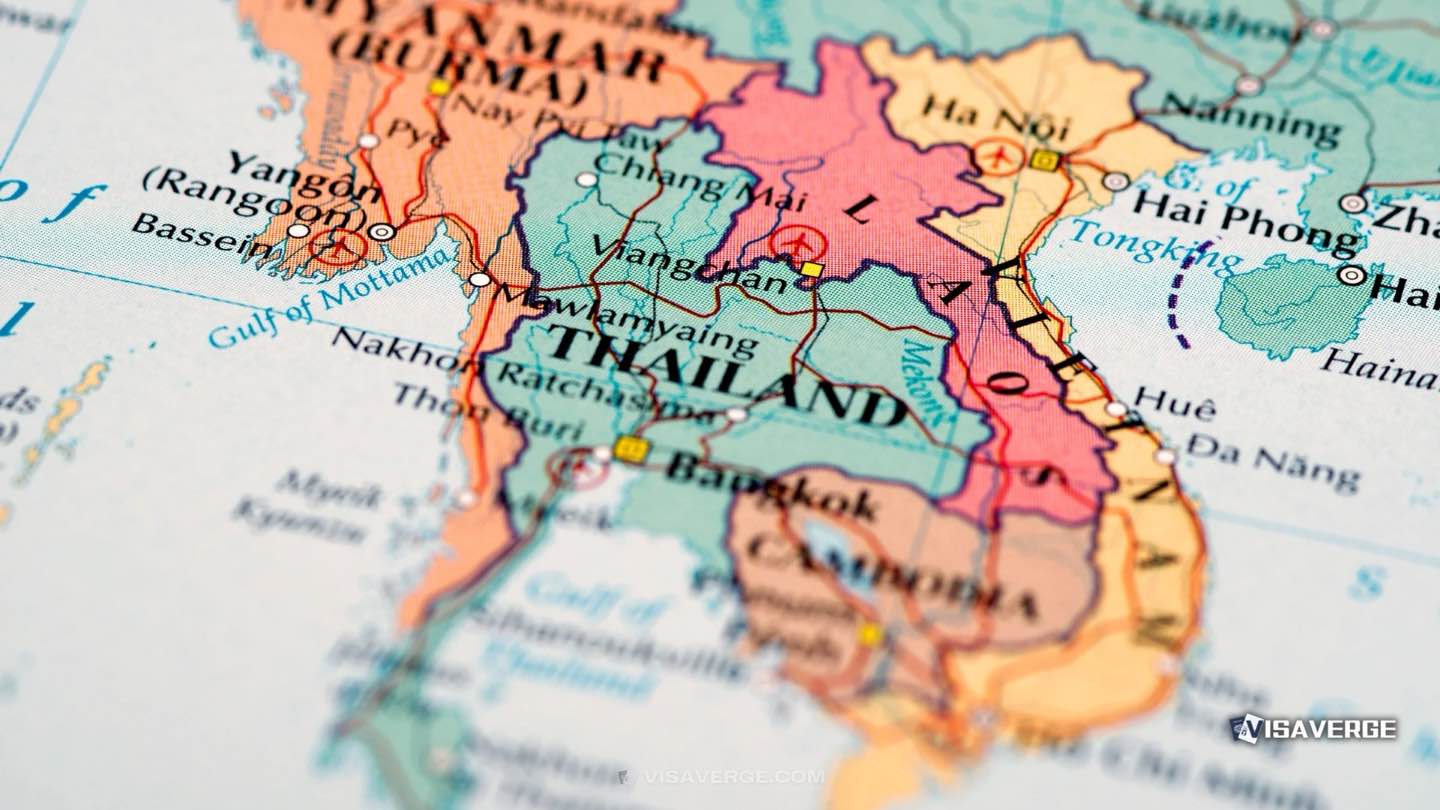Key Takeaways
• On June 21, 2025, US airstrikes destroyed Iran’s nuclear enrichment sites at Fordow, Natanz, and Esfahan.
• Major airlines suspended or rerouted flights over the Middle East, affecting hubs like Dubai and Tel Aviv.
• Flight cancellations exceed 1,800; Iran loses $2.2M daily in fees; Saudi Arabia’s overflight traffic doubled.
Global Airlines Suspend and Reroute Flights After U.S. Bombs Iranian Nuclear Sites
On June 21, 2025, the world watched as the United States 🇺🇸 launched airstrikes on Iranian nuclear sites, targeting facilities in Fordow, Natanz, and Esfahan. Former President Trump confirmed these strikes in a public address, describing the destruction of Iran’s key nuclear enrichment centers. The immediate aftermath has sent shockwaves through the global aviation industry, with global airlines suspending or rerouting flights across the Middle East. This has left thousands of travelers stranded, caused major disruptions to air cargo, and forced airlines and governments to make rapid decisions to protect passengers and crews.

This article explains what happened, why it matters, and what travelers, airlines, and governments are doing in response. It also provides practical steps for those affected and examines the broader impact on global travel and immigration.
What Happened: U.S. Bombs Iranian Nuclear Sites, Airspace Closes
On June 21, 2025, the U.S. military carried out airstrikes on several Iranian nuclear facilities. The strikes came after a week of rising tensions, including Israeli attacks on Iran. In response, Iran, Iraq, Syria, Israel, Kuwait, and Jordan closed or restricted their airspace to commercial flights. Airlines were officially advised to avoid these regions due to the risk of further military action and possible accidents.
Real-time flight tracking showed that the skies over Iran, Iraq, Syria, Israel, and parts of the Gulf were nearly empty. Commercial flights vanished from these areas, with planes diverting north over the Caspian Sea or south via Egypt and Saudi Arabia.
Immediate Impact: Global Airlines Suspend and Reroute Flights
Major international airlines—including Singapore Airlines, British Airways, Air France-KLM, Emirates, Etihad, Qatar Airways, and U.S. carriers—have canceled, suspended, or rerouted flights to and from key Middle Eastern hubs such as Dubai, Doha, Riyadh, and Tel Aviv. Gulf carriers like Emirates, Etihad, Flydubai, and Air Arabia have suspended multiple routes and warned of further disruptions. Some suspensions are set to last through June 30 or July 15, with ongoing reviews as the situation develops.
Evacuation and rescue flights are operating from Israel, with Ben Gurion and Haifa airports open for limited windows. Israel’s Airports Authority is running 24 rescue flights daily as of June 23, focusing on helping stranded nationals leave the country.
Airspace Closures and Flight Suspensions: Who Is Affected?
Airspace Closures
- Iran, Iraq, Syria, Israel, Kuwait, and Jordan have closed or restricted their airspace to commercial traffic.
- Airlines are officially advised to avoid these regions due to safety concerns.
Flight Suspensions
- Singapore Airlines: Flights to Dubai canceled through at least June 24.
- British Airways: Flights to Dubai and Doha grounded June 22; rebooking allowed through July 6.
- Air France-KLM: Flights to Dubai and Riyadh canceled June 22–23.
- Emirates, Etihad, Flydubai, Air Arabia: Multiple suspensions to Iran, Iraq, Israel, Russia, Armenia, Georgia, Azerbaijan, and Jordan, with some through June 30 or July 15.
- U.S. Carriers: American Airlines suspended Qatar service; United Airlines canceled Dubai flights.
- Indian Carriers: Air India and IndiGo rerouting or canceling flights to bypass Iranian, Iraqi, and Israeli airspace.
Rerouting
Flights between Europe and Asia are now detouring north over the Caspian Sea or south through Egypt and Saudi Arabia. This increases flight times, fuel costs, and makes airline operations more complicated.
By the Numbers: The Scale of Disruption
- Over 1,800 flights to and from Europe have been canceled or rerouted since restrictions began (IATA, June 21).
- Iran is losing an estimated $2.2 million per day in overflight fees (previously $800 million annually).
- Iraq’s daily losses are about $820,000; UAE incurs $410,000 extra daily costs; Qatar $329,000.
- Saudi Arabia’s overflight traffic has doubled (700 to 1,400 daily), netting an extra $270,000 per day; Egypt gains $137,000 daily.
- Indian carriers’ rerouting costs exceed $1.6 million per day.
- European airports (Heathrow, Schiphol, Charles de Gaulle) reported over 300 unrelated delays/cancellations on June 22.
Airline and Government Responses
Airline Executives
- Singapore Airlines: “The situation is fluid. We are closely monitoring developments and will adjust our operations as needed.”
- Air India: “Flights currently do not operate over the airspaces of Iran, Iraq, and Israel. Passenger and crew safety remains our top priority.”
- Etihad Airways: “This remains a highly dynamic situation. Additional changes or disruptions—including sudden airspace closures—may occur at short notice.”
- Flydubai: Advises passengers to monitor flight status and review rebooking options.
Government Officials
- President Trump (June 21): “Iran’s key nuclear enrichment facilities have been completely and totally obliterated.”
- Gulf governments have called for de-escalation and are monitoring the situation closely.
Aviation Authorities
- International Air Transport Association (IATA): Confirmed the scale of disruptions and financial impacts.
How Passengers Are Affected
Travelers are facing a range of problems:
- Cancellations and Delays: Many flights are canceled or delayed, sometimes at the last minute.
- Longer Flight Times: Rerouted flights take longer, sometimes adding hours to journeys.
- Higher Ticket Prices: Increased fuel and crew costs are pushing up prices.
- Rebooking and Refunds: Airlines are offering free rebooking or refunds for affected routes. Some travelers are being routed overland or by sea to exit conflict zones.
- Evacuation Flights: Special flights are being run to help stranded nationals, especially in Israel.
What Should Travelers Do?
- Check Flight Status: Monitor airline websites and flight tracking platforms like FlightRadar24 for real-time updates.
- Rebooking/Refunds: Contact your airline for rebooking options or refunds if your flight is canceled or rerouted. Many carriers are waiving change fees for affected routes.
- Evacuation Flights: If stranded in Israel or nearby, consult your embassy or Israel’s Airports Authority for rescue flight schedules.
- Alternative Routes: Consider rerouting through unaffected hubs such as Singapore, Hong Kong, Johannesburg, or direct flights where available.
- Stay Informed: Follow official advisories from your airline, government, and local authorities.
Impact on Airlines and Regional Economies
Airline Operations
- Increased Costs: Airlines are spending more on fuel and crew due to longer routes.
- Crew Scheduling Problems: Longer flights mean crews reach their maximum working hours faster, leading to more cancellations.
- Revenue Losses: Countries with closed airspace are losing money from overflight fees, while others (like Saudi Arabia and Egypt) are earning more as airlines use their airspace instead.
Cargo and Supply Chains
- Delays and Higher Costs: Air cargo shipments between Europe, Asia, and the Middle East are delayed and more expensive.
- Global Trade Impact: These delays ripple through supply chains, affecting businesses and consumers worldwide.
Safety and Security Concerns
Aviation security experts warn that the risk of aerial attacks, accidental shoot-downs, and GPS interference is now much higher in the region. This makes the Middle East one of the world’s most dangerous places for commercial aviation. Airlines are taking extra precautions, but the risk remains.
Industry analysts point out that with Russian and Ukrainian airspace already closed due to war, the loss of Middle Eastern corridors makes it much harder for airlines to connect Europe and Asia. This puts extra pressure on airlines, airports, and travelers.
Multiple Perspectives: How Different Groups Are Affected
- Airlines: Focused on safety, facing higher costs, and dealing with complex operations.
- Passengers: Dealing with uncertainty, delays, and sometimes being stranded or needing evacuation.
- Governments: Trying to balance security with economic impacts, and calling for calm.
- Regional Airports: Some, like Ben Gurion and Haifa, are helping with evacuations. Others, like Dubai and Doha, have seen sharp drops in traffic.
- Neighboring Countries (Saudi Arabia 🇸🇦, Egypt 🇪🇬): Benefiting from more flights and higher overflight fees.
Background: Why the Middle East Matters for Global Airlines
The Middle East is a key corridor for global air travel, especially after Russian and Ukrainian airspace closed due to ongoing war. Many flights between Europe and Asia usually pass through this region. Past incidents, such as the MH17 shoot-down over Ukraine in 2014, have made airlines very cautious about flying over conflict zones.
The current crisis follows a series of Israeli strikes on Iran starting June 13, 2025, which led to the U.S. bombing Iranian nuclear sites on June 21. These events have made the region even more unstable, with serious effects on travel, trade, and security.
Economic Impact: Who Wins and Who Loses?
- Iran 🇮🇷: Losing $2.2 million per day in overflight fees.
- Iraq 🇮🇶: Losing $820,000 per day.
- United Arab Emirates 🇦🇪: Incurring $410,000 in extra daily costs.
- Qatar 🇶🇦: Facing $329,000 in extra daily costs.
- Saudi Arabia 🇸🇦: Overflight traffic has doubled, earning an extra $270,000 per day.
- Egypt 🇪🇬: Gaining $137,000 per day from increased overflight traffic.
- Indian Carriers: Rerouting costs exceed $1.6 million per day.
These numbers show how the crisis is shifting money and traffic from some countries to others, while making travel more expensive for everyone.
Future Outlook: What Happens Next?
Continued Disruptions
Airlines and authorities expect ongoing problems, with the possibility of more airspace closures or sudden changes if the conflict gets worse. Most flight suspensions are in place through at least June 30 or mid-July, but this could change quickly.
Possible Resumption
Some airlines are reviewing the situation daily and may resume limited services if things improve. However, most are being very cautious.
Long-Term Impacts
If the closures last a long time, global air routes could change for good. This would mean higher costs for airlines, less profit, and big effects on regional economies.
Diplomatic Efforts
Gulf governments and international organizations are urging all sides to calm down and restore stability so that air travel can return to normal.
Practical Guidance for Travelers and Immigrants
If you are traveling to, from, or through the Middle East, or if you are an immigrant with travel plans in the region, here’s what you should do:
- Check your flight status regularly. Use your airline’s website or FlightRadar24 for updates.
- Contact your airline for rebooking or refunds. Many airlines are waiving change fees and offering flexible options.
- If you are stranded, contact your embassy or consulate. They can help with evacuation flights or emergency travel documents.
- Stay informed. Follow official government advisories, such as those from the U.S. Department of State, for the latest travel warnings and safety information.
- Consider alternative routes. If possible, reroute your travel through unaffected airports or regions.
Official Resources
- Airlines: Visit official airline websites for the latest updates and customer service contacts.
- Flight Tracking: Use FlightRadar24 for real-time airspace and flight status information.
- Israel Airports Authority: For evacuation flight schedules and airport status.
- International Air Transport Association (IATA): For industry-wide updates and advisories.
- Embassies/Consulates: For help with evacuation or travel documentation.
Conclusion: A Crisis With Global Reach
The U.S. bombing of Iranian nuclear sites has triggered the most severe disruption to Middle Eastern airspace in years. Global airlines have suspended or rerouted flights, causing major financial losses and leaving thousands of passengers affected. The situation remains highly fluid, with ongoing risks, changing airline policies, and no clear timeline for a return to normal operations.
As reported by VisaVerge.com, the crisis highlights how quickly global events can impact travel, immigration, and the movement of people and goods around the world. For now, travelers, airlines, and governments must stay alert, flexible, and ready to adapt as the situation unfolds.
For more official updates and travel advisories, visit the U.S. Department of State’s travel advisory page.
Key Takeaways:
- Check flight status and advisories before traveling.
- Contact your airline for rebooking or refunds if affected.
- Stay in touch with your embassy if stranded or needing evacuation.
- Expect higher prices, longer travel times, and possible delays.
- Monitor official sources for the latest information.
The world’s skies have changed overnight, and everyone—from travelers to airlines to governments—must adjust to this new reality.
Learn Today
Airspace Closure → Official restriction preventing commercial flights from entering specific territorial skies for safety reasons.
Overflight Fees → Charges paid by airlines for flying through a country’s airspace during international routes.
Rerouting → Changing a flight’s original path, often to avoid unsafe or restricted airspace.
Evacuation Flights → Special flights organized to transport stranded or at-risk nationals from dangerous zones.
International Air Transport Association (IATA) → Global trade association representing airlines, providing industry data and guidance.
This Article in a Nutshell
US bombings on Iranian nuclear sites on June 21, 2025, caused widespread flight suspensions and rerouting. Airlines face higher costs and delays, thousands stranded. Key Middle East airspace closures disrupt global travel and economics. Passengers must stay updated, seek rebookings, and consider alternate routes amidst ongoing tension and unclear future.
— By VisaVerge.com













